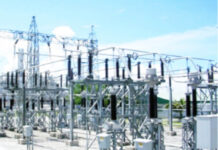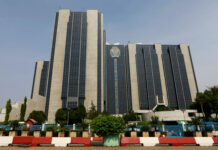Africa needs to take advantage of the economic potential of its ports and shipping sector if it is to realise its growth ambitions.
Globally, ports are gateways for 80% of merchandise trade by volume and 70% by value.
Investment in ports and their related transport infrastructure to advance trade and promote overall economic development and growth is therefore vital – particularly in emerging economies that are currently under-served by modern transportation facilities.
However, port investment must be channelled appropriately to ensure financial sustainability and economic growth.
Investment is not always about building new ports or terminals – investment spent on infrastructure without cognisance of the efficiency and effectiveness of the performance of the port may not produce the desired results.
Port performance must be seen in the context of not only port infrastructure shortfalls, but also the fact that port performance has a direct impact on the efficiency and reliability of the entire transport network in which the port is just a node for the transfer of goods.
These are among the key findings of an analysis of port development in sub-Saharan Africa (SSA) issued by PwC.
The report, ‘Strengthening Africa’s gateways to trade’, was developed in response to the challenges facing SAA’s ports in attracting external investment and highlighting the regional economic and growth benefits thereof.
Download the report ‘Strengthening Africa’s gateways to trade’ here: https://goo.gl/pXBsZK
Why ports matter
As an emerging market region endowed with vast resources and a growing population, SSA must accelerate its market access and trade across the region and with the rest of the world.
PwC analysis shows that a 25% improvement in port performance could increase GDP by 2%, demonstrating the close relationship between port effectiveness and trade competitiveness.
With growing congestion in many African ports, Africa runs the risk of sacrificing further growth through lack of investment in port terminal infrastructure.
Access to effective ports, interconnecting infrastructure and efficient operations to cope with current demand and future growth, will lead to reduced costs and improved overall freight logistics efficiency and reliability – all of which are fundamental to the region’s future success.
Despite the high volumes of goods that require transport, the development and integration of ports in Africa’s wider logistic chains remains uneven.
Some ports are important generators of benefit and serve large hinterland areas, often extending beyond national borders.
Others lag in terms of available facilities, reliability and efficiency in the handling of freight, which increase supply-chain costs.
The disparities in performance between different ports impacts on Africa transport logistic chains, and makes African countries less competitive than they could be.
Dr. Andrew Shaw, PwC Africa Transport and Logistics Leader, says: “Ports are a vital part of the supply chain in Africa, with many ports having a far-reaching hinterland often spanning a number of countries, which makes them a natural focus for regional development.”
“In this report we show that the global transportation and logistics industry can no longer afford to ignore developments in Africa. Logistics service providers and ports in particular will continue to play a key facilitator role in trade competitiveness and thus facilitate trade and sustained economic growth across the region. Trade competitiveness requires governments and key stakeholders to see ports as facilitators of trade and integrators in the logistics supply chain. Efficient ports can make countries and regions more competitive and thus improve their growth prospects. The reliability and efficiency of each port terminal, including minimising delay to shippers, is critical to enhancing future trade facilitation.”
Kuria Muchiru, Partner, Government & Public Sector PwC Kenya, adds: “Efficient port operations in Mombasa and Dar es Salaam are critical to increased throughput and evacuation of cargo. Investments in rail are seen as a major step towards contributing to improved performance. Developments in multimodal operations and master planning of the ports to keep up to date with increasing throughput, which in turn fuels economic growth are critical to efficiency. In the long run East Africa is expected to a be a major transhipment hub on the East Coast of Africa, which will reduce freight costs in addition to contributing to the Belt and Road. ”
Ian Arufor, Partner PwC Nigeria, comments: “International trade is a primary vehicle for the international movement of capital to developing nations, which ultimately drives economic development.”
“As the larger West African economies embark upon, or seek to accelerate, the implementation of their economic development drives, new and / or expanded port access and capabilities are increasingly recognised as key tenets of these programs. This is exemplified by the number of active port development and expansion projects in Nigeria and Ghana.”



























